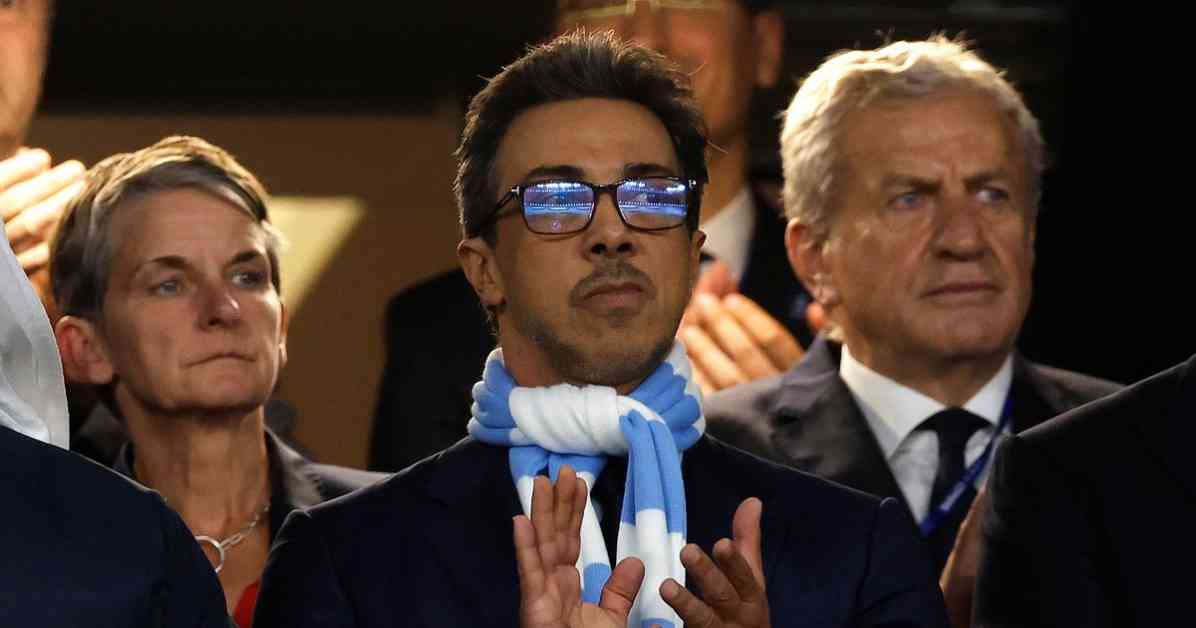Newcastle’s Transfer Spree Raises Concerns in Premier League
In a development separate from Manchester City’s ongoing legal battles, the Premier League champions have reportedly won a legal dispute with the league regarding Associated Party Transactions (APT) rules. According to The Times, a scheduled vote on amendments to the APT regulations was dropped, sparking speculation that City successfully argued the regulations are unlawful. This outcome could have significant implications for the future of the sport, particularly at the top of the Premier League.
The absence of Associated Transaction Parties may seem like bureaucratic red tape in a football world increasingly entangled in legal disputes, but this issue is one that fans should pay attention to. The last-minute withdrawal of the vote on ATP rules indicates that City’s legal team has made progress in altering the rules governing sponsorship deals. This decision has raised concerns about the potential for clubs like City and Newcastle United, who are owned by state entities from Abu Dhabi and Saudi Arabia, to inject unlimited funds into their coffers through inflated sponsorship agreements with companies linked to their owners.
If City and Newcastle are allowed to bypass Profit and Sustainability Rules by securing artificially inflated sponsorship deals, they could outspend their competitors in English football. This situation would give them a financial advantage over other clubs, enabling them to strengthen their squads and attract top talent without adhering to financial regulations. The possible implications of this legal victory for City are troubling, as it could create an uneven playing field in the Premier League.
While City has refrained from commenting on the matter, the potential implications of this legal victory are concerning for competition within the league. If City and Newcastle are granted the freedom to operate without financial constraints, it could lead to an arms race where clubs with wealthy owners can outspend their rivals without repercussions. This scenario would undermine the principles of fair play and financial sustainability in football, potentially distorting the competitive balance of the league.
Implications for Liverpool and the Premier League
The legal dispute involving City and the Premier League has raised questions about the future of the sport and its governance. The prospect of clubs with wealthy owners circumventing financial regulations through inflated sponsorship deals threatens to undermine the integrity of the competition. Liverpool, as one of City’s main rivals in the Premier League, could be particularly impacted by the outcome of this legal battle.
The potential for City and Newcastle to exploit loopholes in financial regulations poses a significant threat to the competitive balance of the Premier League. If these clubs are allowed to operate without financial constraints, it could tilt the scales in their favor and diminish the competitiveness of the league. Liverpool’s success in the league could be jeopardized if City and Newcastle gain a significant financial advantage through questionable sponsorship deals.
As the Premier League grapples with the implications of City’s legal victory, the future of the competition hangs in the balance. The league’s ability to enforce financial regulations and maintain a level playing field among its member clubs is at stake. The outcome of this legal dispute could have far-reaching consequences for the sport and its governance, with potential ramifications for the integrity and competitiveness of the Premier League.
The Future of Financial Regulations in Football
The legal battle between City and the Premier League highlights the challenges facing football’s regulatory framework. The potential for clubs to exploit loopholes in financial regulations through questionable sponsorship deals raises concerns about the integrity of the sport. As clubs with wealthy owners seek to gain a competitive advantage through financial means, the need for robust and effective financial regulations becomes increasingly apparent.
The outcome of City’s legal dispute with the Premier League could set a precedent for how clubs navigate financial regulations in the future. If City and Newcastle are allowed to operate without constraints, it could open the door for other clubs to follow suit and circumvent financial regulations. This scenario would undermine the principles of fair play and financial sustainability in football, posing a threat to the competitiveness and integrity of the sport.
As football grapples with the implications of City’s legal victory, the need for transparency, accountability, and integrity in financial dealings becomes paramount. The future of the sport hinges on the ability of governing bodies to enforce financial regulations effectively and prevent clubs from gaining an unfair advantage through questionable means. The outcome of this legal dispute will shape the future of football governance and financial regulation, with potential implications for the competitiveness and integrity of the sport.






















